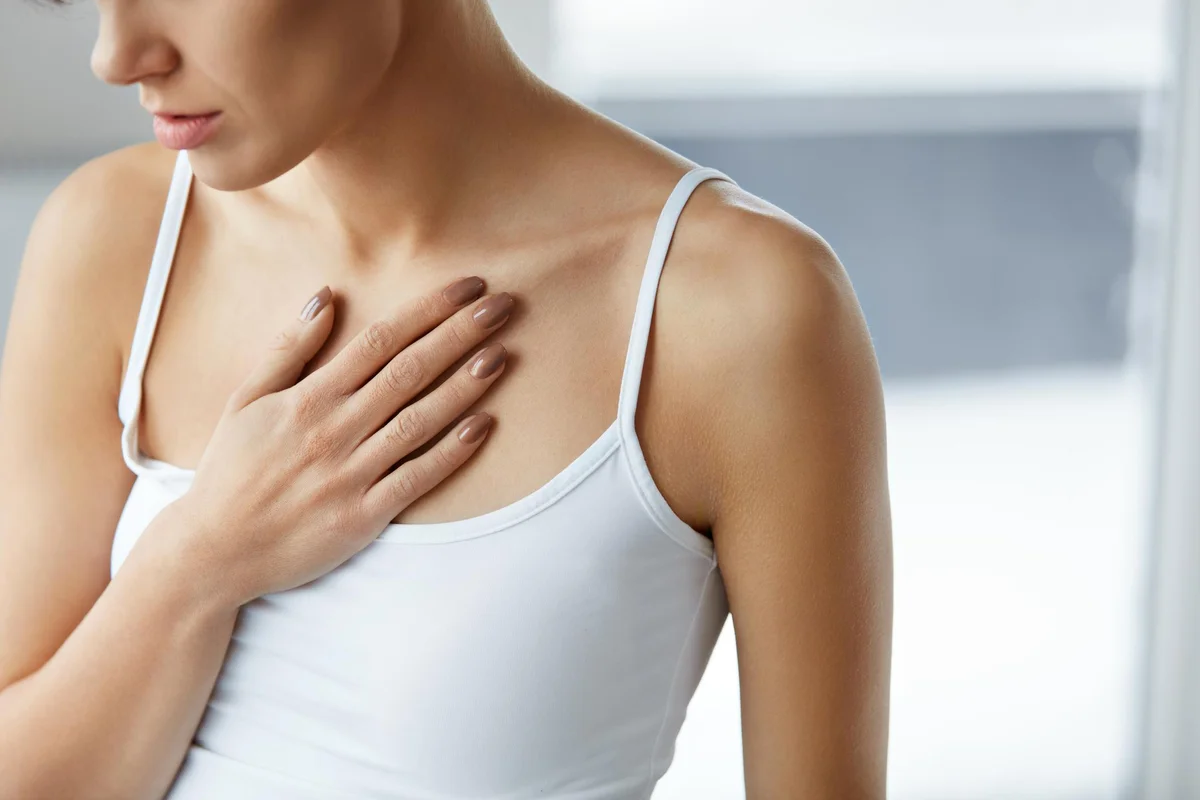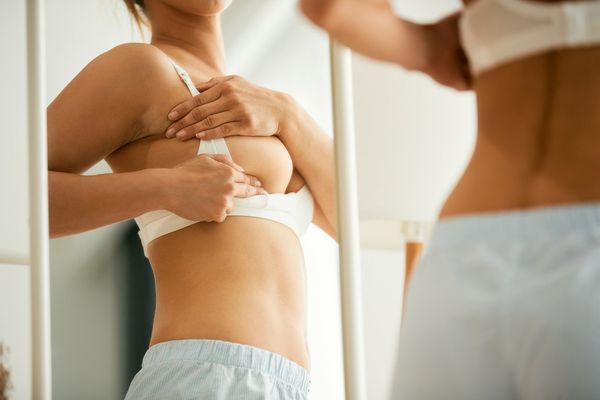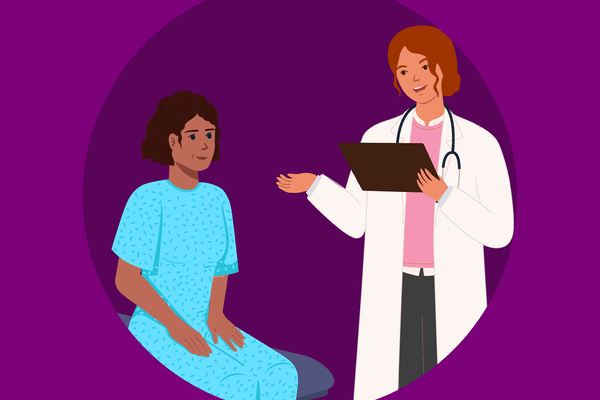Q:
My menstrual cycles are regular, but my breasts get really sore for about 10 days before. Lately I've noticed that when my breasts are sore, the lymph node under one of my arms swells up. Is this any cause for concern? I'm 22 years old.
A:
Breast pain is one of the most common breast-related symptoms women experience. It's called mastalgia in medicalese, and was first described in the medical literature as early as 1829.
Lymph nodes can swell in response to changes in the breast. Women associate lymph node swelling with cancer, however, the lymphatic system gets "turned on" whenever there is a hormonal change. Lymph nodes are also designed primarily to fight off infection. It sounds like what you're experiencing is cyclic mastalgia, or breast pain related to your menstrual cycle. One large US study found that 69 percent of women attending an ob-gyn clinic experienced regular premenstrual breast pain. It's not considered cyclical mastalgia, however, unless the pain occurs for at least seven days a month, as you say yours does, and is quite severe, as it sound like yours is.
I can understand your distress, since many studies find that the pain from cyclic mastalgia can interfere with sleep, work, school, social functioning, physical activity, even sexual activity. That's a lot to have to deal with for 10 days a month!
Despite numerous studies, no one really knows for sure what causes cyclical mastalgia, although there are several suspects. Have you ever been evaluated for fibrocystic breasts? Pain and tenderness are common symptoms of this condition, although the most common are breast lumps (don't worry, it's not related to cancer). There's some evidence that fibrocystic breasts might be related to cyclic mastalgia.
It makes sense to think that hormones are behind the regular pain, particularly since your pain is linked to your menstrual cycle, but no one has yet been able to demonstrate that connection conclusively. Some studies find hormone deficiencies or excesses may play a role, including high levels of prolactin, a hormone associated with breast feeding. Another possible cause: diet. Try cutting back on dietary fat and caffeine and see if that helps.
One thing you probably don't have to worry about is breast cancer. The link between cyclical mastalgia and breast cancer is very tenuous. And given your age, it's highly unlikely this will be a concern.
However, one thing concerns me about your problem. Studies find that cyclic mastalgia typically occurs in women in their 30s or 40s; you're still in your 20s. I'm also concerned about the pain you say you feel in the lymph node under your arm.
So I think it's important that you see your health care provider for a complete physical examination. At that time, you can also talk about what you can do to relieve the pain. Possible options include:
- A more supportive bra (an estimated 70 percent of women wear bras that don't fit right). Try wearing it at night, as well.
- Relaxation techniques. One study of women with breast pain who listed to a tape of progressive muscle relaxation for four weeks found 61 percent experienced a substantial or complete relief of the pain, compared to 25 percent of a control group who didn't listen to the tape.
- Evening primrose oil. A few small studies find some benefit from taking recommended doses of this supplement. Evening primrose oil is an excellent source of anti-inflammatory omega-3 fatty acids, which may be the reason for its benefits.
- Pain relievers. Aspirin, ibuprofen, and even topical analgesics that you rub on the breast may help with the pain.
- Medications. If none of these non-prescription remedies help, talk to your healthcare provider about prescription drugs. Most are hormonal remedies, such as oral contraceptives. Only one drug has been approved specifically for the treatment of mastalgia. Called danazol (Danocrine), it's a form of the male hormone testosterone. Overall, 59 to 92 percent of women treated with this drug find relief from their pain, but they also experience significant side effects, so I only recommend this as a last resort.
Finally, I urge you not to worry. I'm sure between you and your health care professional, you will find out the cause of your breast and lymph node pain, and come up with a treatment that works for you.
- Healthy Breasts: A Guide to Caring for Your Breasts ›
- Perimenopausal Breast Tenderness - HealthyWomen ›






